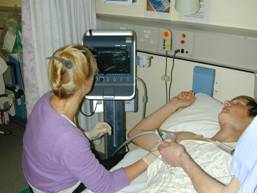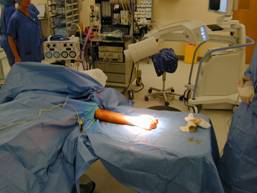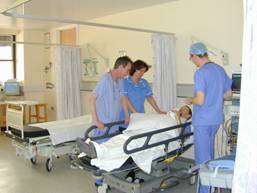Having an operation
The prospect of surgical treatment can be daunting. A full explanation and understanding of what the experience will feel like, will help reassure prospective patients.
Before the operation, your surgeon will explain the options for treatment, how to make a choice, what those choices entail, what the likely timescales for recovery will be, and what the likelihood of a return to normal will be. You will also be told about the possible complications and risks of surgery. These can be described as anaesthetic (risks specific to the anaesthetic), general (risks found in all operations, such as scarring, wound infection etc) and specific (risks just found in the procedure you are considering). Your surgeon should discuss these with you.
When you understand all of these issues, you will be in a position to give informed consent. That means that you can sign a form saying that you understand the risks and benefits of what is being offered.
On the day of your operation, it is likely that you will have to prepare by avoiding all food and drink for a minimum of 6 hours before your planned surgery. This means avoiding anything which might produce extra saliva, and includes chewing gum, boiled sweets etc. Failure to do this could result in your operation being delayed or even cancelled.
Different types of anaesthetic are offered depending on the surgical procedure. Local anaesthetics involve an injection of fluid in the area of the surgery, which makes the tissues numb, but does not affect any other area of the body. Regional anaesthetics (also called 'blocks') cause a part of the body (such as the whole arm), to go numb.

This type of anaesthetic is particularly suitable for hand surgery, and allows patients to go home at the end of their operation, spending only a few hours in hospital. They have the additional advantage of providing prolonged pain relief for several hours after surgery. Some hospitals, such as Leeds General Infirmary, have designed and built Hand Surgery Units to provide this type of service. These are known as ambulatory services, because patients never need to lie down on a hospital bed. General anaesthetics provide a traditional type of anaesthetic, where patients go to sleep for the duration of their operation.


